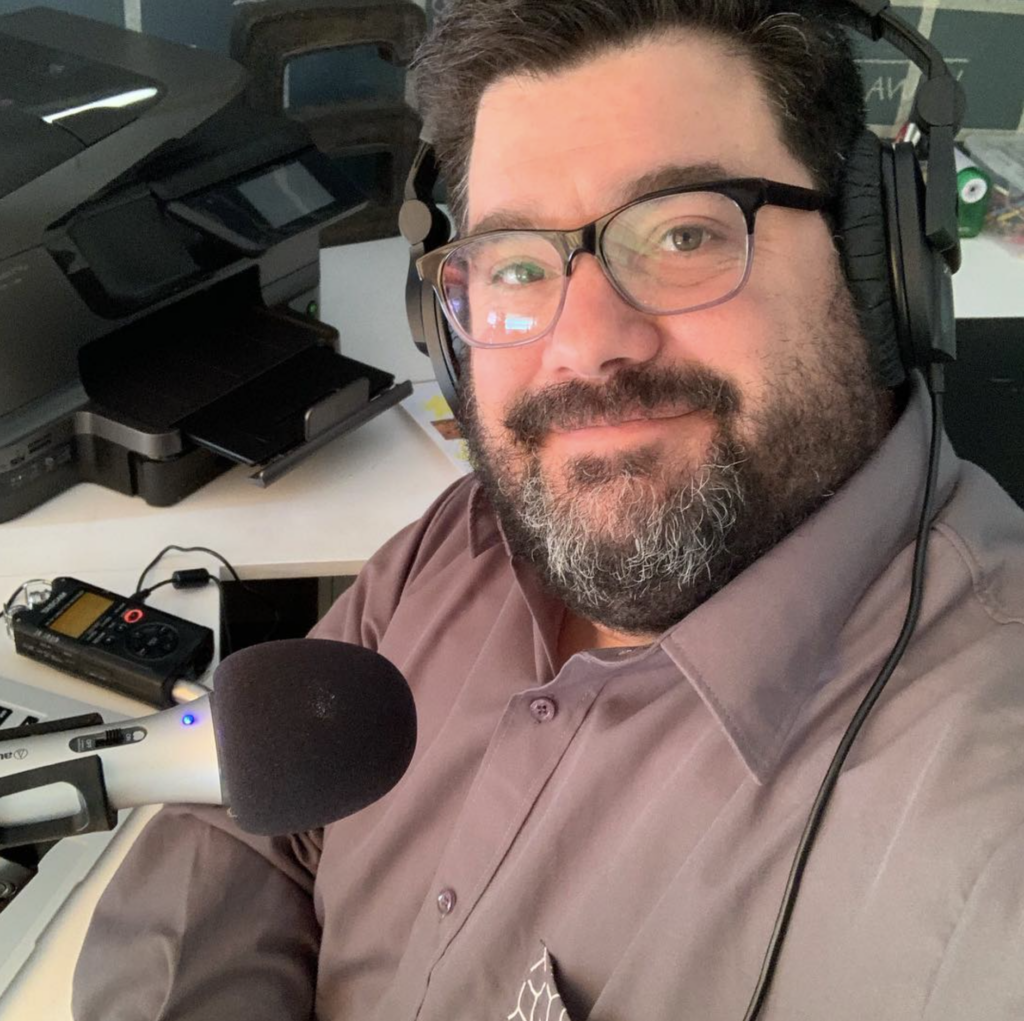Over the last century, life expectancy has slowly and steadily increased, which has been attributed to the evolution of medicine and changes in the American lifestyle, with an emphasis on healthier habits and regular exercise. However, one thing that remains the same is the gender gap. According to the Center for Disease Control and Prevention (CDC), women tend to live an average of 5 years longer than men.1 While this gender gap in life expectancy is not a new phenomenon, researchers suggest there are many reasons that contribute to this ratio shift that favors women. This includes biological factors such as hormonal influences on physiology and behavior, and environmental factors, such as cultural influences on gender differences in health behaviors. As a result of perceived vulnerability, denial and traditional macho views on masculinity, men tend to underuse primary and mental health care services and are less likely to seek medical attention early and adhere to medical treatment, if diagnosed.2
Healthcare professionals are well positioned to help men adopt small, daily changes that can add up to long-term improvements in health, and ultimately help to shrink the gender gap. Having a solid understanding of barriers men face toward adopting a healthier lifestyle and seeking preventative medical care is important before developing an effective course of counseling.
Common Medical Conditions Facing Men
The top two leading causes of death in men of all races and origins includes heart disease followed by cancer. Heart disease is responsible for 1 in every 4 male deaths in the United States.3 In addition to biological and behavioral factors, recent findings suggest that anxiety may increase risk factors that lead to heart disease, stroke, and type 2 diabetes. According to a recently published 40-year study of over 1,500 men, those that often felt anxious or overwhelmed developed risk factors such as obesity, high blood pressure and high cholesterol at a higher rate than their less worried peers.4 While the study did not examine the impact of treatment for anxiety, routine health examinations, including screenings for mental health and heart disease, can be a proactive method of management.
Prostate cancer is the most common cancer in American men except for skin cancer, and risk increases with age.5 According to the prostate cancer foundation, diet and lifestyle modifications have been shown to reduce risk of prostate cancer development and progression.6 According to a study published in Cancer, the Mediterranean diet, based on a foundation of fruits, vegetables, grains, legumes and fish, may be beneficial for men with localized prostate cancer due to its anti-inflammatory, anti-lipidemic, and chemo-preventative properties.7
Helping Men Make Health a Priority
While the disparity in men’s health currently exists, it’s never too late to make positive changes that lead to meaningful improvements in quality of life, mental and physical well-being, and life expectancy. One of the first proactive steps men can take is scheduling an annual physical exam with medical provider. If any health conditions or concerns are discovered, following up with the appropriate practitioner is essential for continuity of care and support. Early detection is the only chance for a cure or effective treatment in certain medical conditions, which is why regular health screenings is vital. Annual health screenings for men include those for cardiovascular health, testicular cancer with self-checks, colorectal cancer, diabetes, and mental health.
Counseling may also require a different approach for men to openly share symptoms or personal experiences. Asking concrete questions leading with what, when, how much, and how many times, may result in more open conversation versus leading with questions that may trigger an emotional response such as “how are you?”8 In addition, assessing body language and willingness to engage in a more open conversation about health and nutrition may be a helpful tactic during counseling male patients.
Actionable Tips and Strategies from Registered Dietitians
Orgain’s Vice President of Healthcare, Sports & Professional Education, Keith Hine, MS, RD, shared some steps he takes to prioritize his health as a registered dietitian and busy father of two. “When it comes to nutrition, I generally focus on two aspects daily. First, eating a variety of fiber-rich foods throughout the day, which helps to keep my IBS under control. Typically, with these foods you also get other beneficial nutrients like vitamins, minerals, and polyphenols to keep body and mind performing optimally. Second, I keep a running mental log of how many total calories I’m consuming versus my goal and stop eating when full – even if that means leaving food on the plate.” Try Keith’s favorite morning smoothie with this recipe!
In addition to nutrition, Keith does his best to carve out time for any form of physical movement. “Whenever possible, I try to stay active (or in motion) after hours of facing computer monitors during the day. So, for me at the end of the workday or on weekends, that means walking the dog around neighborhood, playing adult soccer (when I can squeeze it in), washing dishes, cleaning the house, doing laundry, working around yard or on house projects, playing outside with our boys, etc.”
According to registered dietitian and member of Orgain’s Nutrition Advisory Board, Erin Palinski-Wade, RD, CDCES, CPT, “taking charge of your health doesn’t have to be time-consuming or stressful.” Erin shared these simple tips that can help men improve energy and mood while helping to prevent future disease:
Make sleep a priority
Just one poor night’s sleep can increase hunger and cravings while increasing insulin resistance and fatigue. If you want to feel your best each day, it starts with getting a good night’s rest the day before. To do this, focus on having a consistent bedtime routine including a set sleep and wake time, remove distractions including electronics at least 10 minutes before bed, and set yourself up in a dark and quiet environment.
Move more than you sit
Even if you can’t always find the time to schedule structured exercise, general daily movement goes a long way to boosting health, energy, and mood. To keep it easy, focus on this one simple strategy: move more than you sit. Find small ways to increase movement each day such as using a standing desk when possible, taking the stairs instead of the elevator, or standing and pacing while talking on the phone vs sitting. These small bouts of movement can add up to significant improvements in long-term health.
Add protein to each meal and snack
Dietary protein can do more than just preserve lean body mass. Adding protein to each meal and snack can help to balance appetite and blood sugar levels, for steady energy throughout the day. To make it easy, carry Orgain ready-to-drink shakes with you on the go or mix Orgain’s line of quality protein powders or Collagen Peptides into your favorite drink. This simple addition can help to ensure you meet your daily protein needs without adding more time or stress to your busy day!
Learn More with Orgain
To further your learning about men’s health and ways to combat negative body image, listen to episode 26 of The Good Clean Nutrition Podcast sponsored by Orgain: Men’s Health & Body Image w/ Aaron Flores, RDN.
- Centers for Disease Control and Prevention. (2022, August 31). Life expectancy in the U.S. dropped for the second year in a row in 2021. Centers for Disease Control and Prevention. https://www.cdc.gov/nchs/pressroom/nchs_press_releases/2022/20220831.htm
- Mars vs. Venus: The gender gap in health – Harvard health publishing. Harvard Health. (2019, August 26). https://www.health.harvard.edu/newsletter_article/mars-vs-venus-the-gender-gap-in-health
- Centers for Disease Control and Prevention. (2023, May 15). Men and heart disease. https://www.cdc.gov/heartdisease/men.htm
- Lee, L. O., Grimm, K. J., Spiro, A., & Kubzansky, L. D. (2022). Neuroticism, worry, and cardiometabolic risk trajectories: Findings from a 40‐year study of men. Journal of the American Heart Association, 11(3). https://doi.org/10.1161/jaha.121.022006
- Cancer facts for men. Common Cancers in Men. (n.d.). https://www.cancer.org/cancer/risk-prevention/understanding-cancer-risk/cancer-facts/cancer-facts-for-men.html
- About prostate cancer. Prostate Cancer Foundation. (2021, August 18). https://www.pcf.org/about-prostate-cancer/
- Gregg, J. R., Zhang, X., Chapin, B. F., & Ward, J. F. (2021). Adherence to the Mediterranean diet and grade group progression in localized prostate cancer: An active surveillance cohort. Cancer, 127(5), 720–728. https://doi.org/10.1002/cncr.33182
- Madsen, S. A. (2015). Men as patients: Understanding and communicating with men. Trends in Urology & Men’s Health, 6(3), 22–26. https://doi.org/10.1002/tre.458
Episode 26: Men’s Health & Body Image w/ Aaron Flores, RDN

Eating disorders in men are considered underdiagnosed and undertreated, and stigma around male body image can prevent men from opening up about feelings of body shame. In this episode of The Good Clean Nutrition Podcast, host Mary Purdy, MS, RDN speaks with Aaron Flores, registered dietitian and Certified Body Trust Provider, to discuss men’s health and nutrition from a non-diet approach.
In this episode we cover:
(5:20) Health at Every Size & Body Trust concept
(14:40) Top nutrition issues men face today
(23:41) How to improve your relationship with food & body
(31:40) Physical movement that supports body trust
(34:52) Men Unscripted Podcast
Be sure to subscribe to The Good Clean Nutrition Podcast on your favorite podcast platform and listen to more episodes at https://healthcare.orgain.com/podcast.
Ambassador Spotlight: Celine Reyes, MS, RD, LDN

We’re delighted to share this month’s ambassador spotlight on Registered Dietitian Coach at All Access Dietitians, Celine Reyes, MS, RD, LDN. Learn more about her inspiring professional journey and the unique challenge she faced and overcame while becoming a successful practitioner in private practice.
Orgain Recommendations:
I love recommending the protein powders as a great plant-based supplement, especially for more active or plant-based clients, and I love suggesting different ways to use it, like in smoothies, overnight oats, or acai bowls. The ready-to-drink shakes are another convenient way to make sure they’re getting enough protein in. While we currently accept Empire Blue Cross Blue Shield (BCBS), which covers up to 100% of unlimited nutrition care, we can also provide claims for those without BCBS to receive reimbursement for Orgain products.
Current Role:
I am a Dietitian Coach at a new and rapidly growing virtual private practice based out of Chicago called All Access Dietitians. We offer a unique approach to nutrition counseling by combining both the dietitian expert hat with the wellness coach hat. We are both clinically trained registered dietitians and health coaches who empower clients with the skills and tools to advance their own well-being. We create long-term and weekly goals to help support their vision, checking in on their progress and making changes to their plan as needed. The greatest thing about our services is that it is covered by insurance, making nutrition care more accessible to a larger population.
Professional Journey
My journey started a long time ago when I thought I wanted to become a medical doctor. I studied music and pre-medicine at New York University. After graduating, I didn’t feel as passionate about medicine as I thought I would, so I took some time off doing clinical research at Northwestern University. While I have loved food and wellness my entire life, it wasn’t until this time that I realized the gap in knowledge about nutrition among so much of the population. Combined with misinformation on the internet and social media, it seemed like most people I knew had a very poor understanding of what a balanced diet was. I earned my master’s degree in nutrition from the University of Illinois at Chicago, where I also did my dietetic internship across a wide variety of rotation settings, all while teaching group fitness classes and keeping up with endurance running. I see myself as a liaison for nutrition education, translating evidence-based research into comprehensible bites of knowledge.
One thing that makes me unique in the profession is that I am legally blind and have a juvenile-onset form of macular degeneration, but I found that nutrition was not only my passion but also a career path where I could be very successful without limits despite my disability.
Have you used Orgain’s direct-to-patient sampling option? It’s a unique and simple way to send Orgain product samples to patients to try before they make a purchase or request coverage through an insurance provider (if applicable). Here’s how it works:
- Log in to your Ambassador Portal
- You’ll see 3 sampling options: (1) request samples to my practice; 2) send samples to my patient; 3) send discount offer to my patient. Click on option 2: send samples to my patient.
- Next, you’ll see the number of sample kits that you could send per month, and what is remaining, at the top. If you have sample kits remaining, enter your patient’s email and shipping, and select the starter kit you’d like to send.
- Upon submitting the form, your patient will receive an email notifying them of the request.

Register now for next month’s webinar on July 13, 2023, 2pm EST: Skin Health and Nutrition: Separating the Science from the Trends, presented by Nancy Collins, PhD, RDN, LD, NWCC, FAND. This webinar will examine the principles of evidenced-based care to maintain optimal skin health across the lifespan.
In case you missed our recent June webinar, watch it on-demand:
Foods That Activate Your Gut, Brain, and Metabolism, presented by William Li, MD
Did you know that the Orgain Healthcare Professional Education Webinar Series can be easily accessed on the Orgain Healthcare App? Whether on-demand or live, all the webinars in this series are available for 1.0 CPEU for RDNs and NDTRs. Learn More



